Dear Friends of African Women Rising, I have been feeling a bit stuck lately. In…
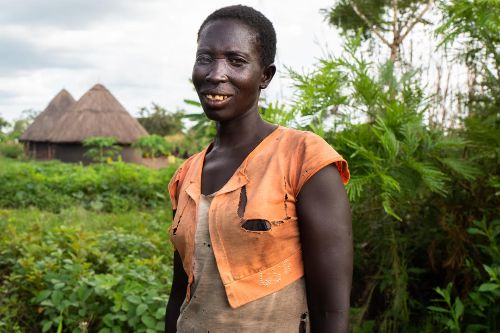
How Dedicated Are You To Fulfill Your Dreams
Dear Friends of African Women Rising,
This weekend marks World Refugee Day. It is a day to honor and acknowledge the plight of the 80 million people who have been forced to leave their homes because of war, conflict or persecution. 26 million of those are refugees, people who have crossed an international border, and another 50 million who are displaced within their own country. There are also 4.2 million asylum seekers and 3.6 million Venezuelans displaced abroad. These are large numbers that are hard to fathom. Each number represents an individual who’s life is in upheaval.
Uganda is one of the countries providing safe havens for refugees. At AWR we work together with refugees from South Sudan every day. They are diverse, hard-working, compassionate, kind, funny, intelligent, generous, inquisitive, silly, affectionate, sensible and so much more.
Today we are sharing some of the stories from the refugees living in Palabek Refugee Settlement Camp in Northern Uganda.

“I never had any children, but I care for three of my brother’s children. I started a permagarden in 2017. It has been helpful, but I have problems with seeds. If I had more seeds, I would plant again. When we left South Sudan we were running away from death. I ran with the children. My brother is still in South Sudan. I have escaped three times now. Three times our homes have been destroyed and we’ve been badly beaten. They burnt our huts. Three times I’ve lost everything. I will only go back if I am sure the peace is going to last.” – Vicky, 30 Years Old
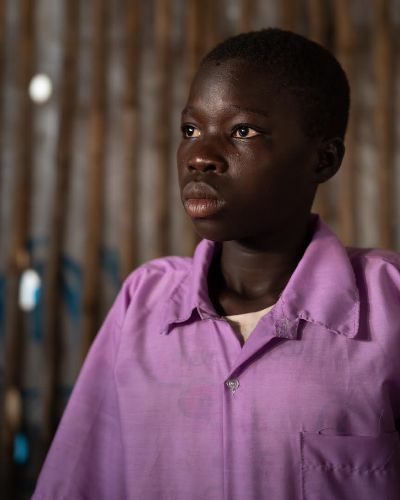
“My favorite subject is english. I came here with my older sister. She is 15. My parents are both in South Sudan still. There are only three of us here. All children. My sister takes care of us. Life here is somewhat OK. When our food runs out, we go to work in the host community. But sometimes there is no work and we end up hungry. I’d like to make sure to study well because I want to be a doctor so I can help my family.” – Nathalie, 13 Years Old, Canaan Primary School, 4th grade
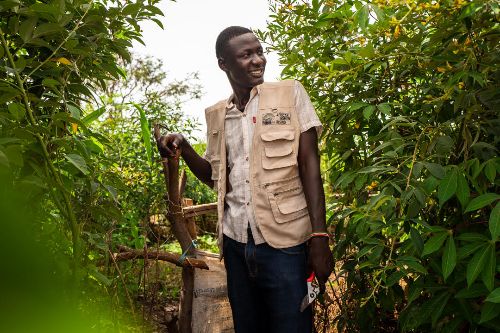
“I started working as a Community Mobiliser in the Permagarden program in 2017. I came here because there were problems in the Eastern Equatorial Region (Torit). My village is called Owiny Kibul in South Sudan. There are military barracks in my area. The rebels are always attacking and sometimes they are kidnapping people and killing them. They will kill anyone. Especially any child old enough to talk. I was attacked in my business. I had a salon. I’m a barber. They attacked me. I was put under gunpoint and they asked for so many things. Things about security that I didn’t know. When I couldn’t answer they would beat me. This was the second time I was attacked and beaten up by rebels. After that I couldn’t feel safe anymore, so I left everything. I came here in 2017 together with my mother, wife, and two children who are two and three. Before I worked for AWR I didn’t have enough food. Now our life is much easier. I enjoy the work and helping my people.” – Matthew, 25 Years Old
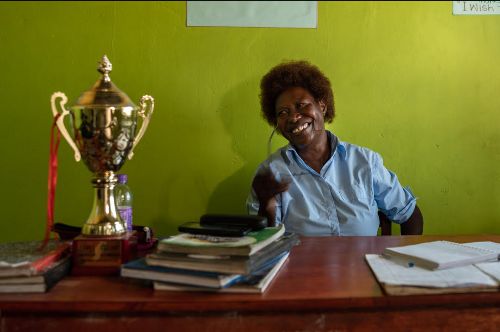
“I am the head teacher at this school. Most of our children are refugees. We have 2,151 students in primary school and 758 in the kindergarten. There are eight tribes and eight different languages, so we use English to unite us. At my school, I have 31 teachers and for the primary school we only have seven temporary classrooms. Many of our lessons take place outside which is difficult when it is raining. It’s a difficult environment to work in. Very challenging. I’ve been working as a teacher for 30 years and this is my hardest assignment. We only have 100 desks for the whole school. There are so many things that we are missing. What I need specifically is more text books. I also need changing rooms for the girls and they could use more soap and cloth for covering themselves when they have menstrual accidents. I also need small things like a stapler and a hole puncher. It would be good to have a metal box to store materials so they don’t get destroyed. It has been good to have GEP (AWR’s Girls Education Program) here. They provide nine mentors which helps give the teachers support. They provide help with classroom control and they also give homework and academic support for students who have problems. i think one of the most important things they have been doing are the home visits. They followup with students who have low attendance and we have seen a great improvement. The exchange visits the girls took to a secondary school in Gulu was a great experience for them and motivated our girls. It was also a nice change in their environment. Our school won the debate club challenge award. We had a competition amongst all of the schools in the refugee camp. It was the mentors who led our debate club. – Margaret, Head Teacher, Canaan Primary School, with the debate trophy.

“I left South Sudan because of all the problems, there is hunger and and my village was attacked. Two neighbors were killed so I ran. I walked for two days with a baby and my husband. My newborn was three days old. Life is better here, we are safe, have food and cooking oil. I take care of two orphans who came here without any adults. AWR helped me start a Permagarden, it provides us with fresh food, vegetables. I can even sell some to earn money. I finished 7th grade but can’t read very well so I am a student at the adult literacy center.” – Agnes
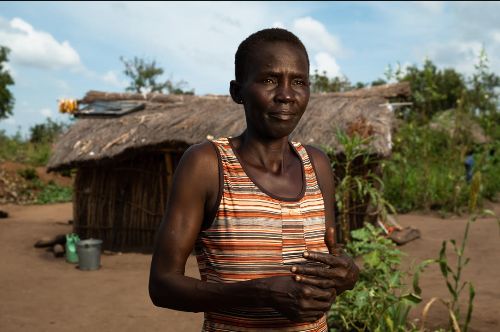
“I came here because of the war. Rebels attacked our village. They burnt the huts and stole animals. People were being killed. That’s when i started running, everyone started running. I first arrived here (Uganda) alone. Now I have four grand children I care for. My daughter, who is 25, also lives with me. Life was good in South Sudan. We had enough food. At first it was very difficult here in the camp because the food was not enough. The food distribution don’t last the whole time. They (World Food Program) have reduced the amount of food we receive every month. It used to last three weeks, now i don’t have even have enough for that. The Permagarden has helped us cover the food shortage, we eat from the garden all the time. I grow bo, okra, cowpeas, eggplant, casava, papaya, pineapple, tomatoes, cucumber, dodo. I sell the okra I produce in the garden and can buy maize. People like my okra. It’s nice to not always eat the beans from WFP. I dry some of the vegetables I produce and plan to sell them in the dry season when the garden is not as productive. With the money I get from the garden I can pay for grinding of the sorghum I get from WFP and also milk, salt and soap. I’m not going back to South Sudan. My family came to Uganda before. We’ve already rebuilt too many times and had to flee when the village was attacked. They will have to show me peace will last. There are also no schools in South Sudan. I want my children to be educated. I myself don’t even know how to read or write. I would like to learn. I just want to stay here even though it is difficult.” – Cecilia, 40 Years Old


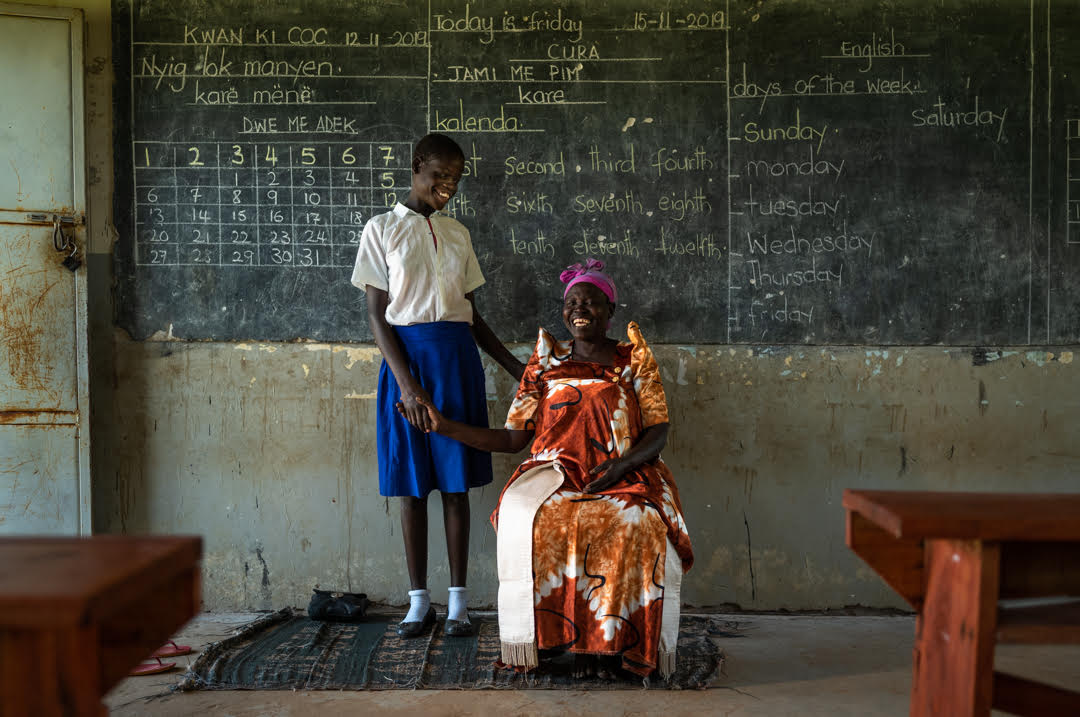
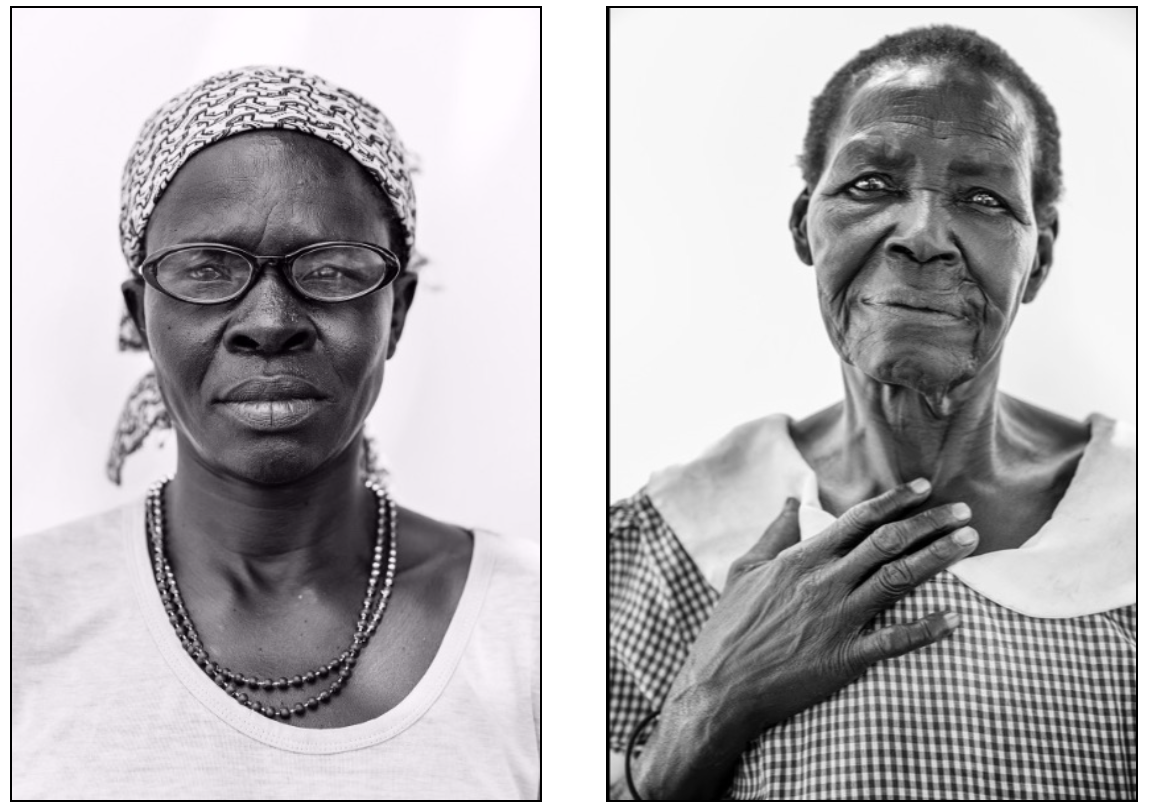
This Post Has 0 Comments